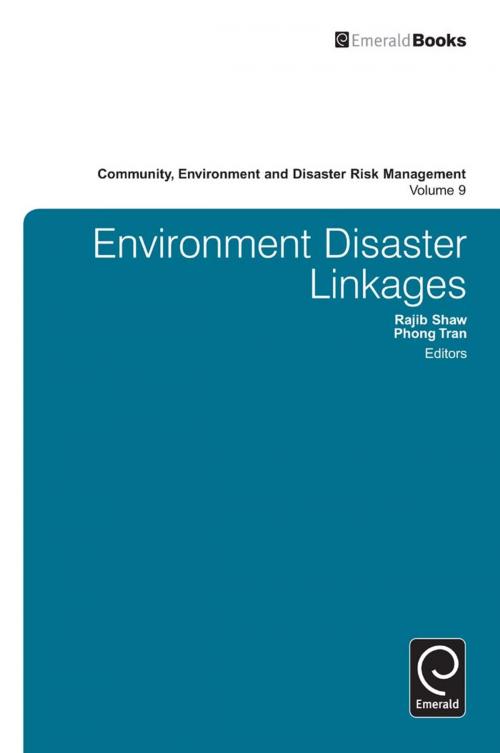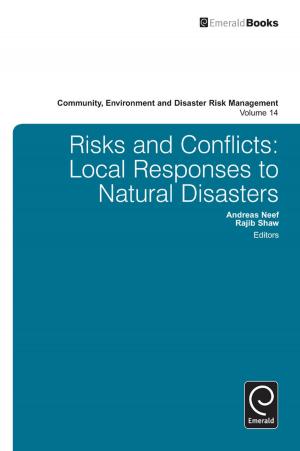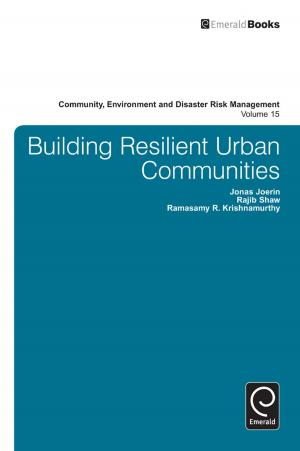| Author: | Rajib Shaw | ISBN: | 9780857248664 |
| Publisher: | Emerald Group Publishing Limited | Publication: | January 17, 2012 |
| Imprint: | Emerald Group Publishing Limited | Language: | English |
| Author: | Rajib Shaw |
| ISBN: | 9780857248664 |
| Publisher: | Emerald Group Publishing Limited |
| Publication: | January 17, 2012 |
| Imprint: | Emerald Group Publishing Limited |
| Language: | English |
Disaster management has historically focused on reactive approaches, but a shift to proactive approaches is crucial for addressing concerns raised by the changing environment. A prime reason for the absence of proactive approaches in disaster/hazard management is the uncertainty or ambiguity present in the links between the environment and the hazards. This is one of the first books to focus on explicit linkages between the changing environment and disasters and suggests better approaches towards disaster management. A ready-reference for field practitioners it combines academic research and field practices and covers areas such as: elements of environmental entry (water-related disasters, desertification and land degradation, typhoon risk management, catastrophic flood and forest management, and coastal issues); impacts of environment and disaster (livelihoods impacts, human health: post-disaster waste management); and strategies, planning and the way forward (climate change adaptation as a planning tool, urban planning and land use planning, mangrove management as a coastal planning tool, and environment disaster education and risk communication).
Disaster management has historically focused on reactive approaches, but a shift to proactive approaches is crucial for addressing concerns raised by the changing environment. A prime reason for the absence of proactive approaches in disaster/hazard management is the uncertainty or ambiguity present in the links between the environment and the hazards. This is one of the first books to focus on explicit linkages between the changing environment and disasters and suggests better approaches towards disaster management. A ready-reference for field practitioners it combines academic research and field practices and covers areas such as: elements of environmental entry (water-related disasters, desertification and land degradation, typhoon risk management, catastrophic flood and forest management, and coastal issues); impacts of environment and disaster (livelihoods impacts, human health: post-disaster waste management); and strategies, planning and the way forward (climate change adaptation as a planning tool, urban planning and land use planning, mangrove management as a coastal planning tool, and environment disaster education and risk communication).















